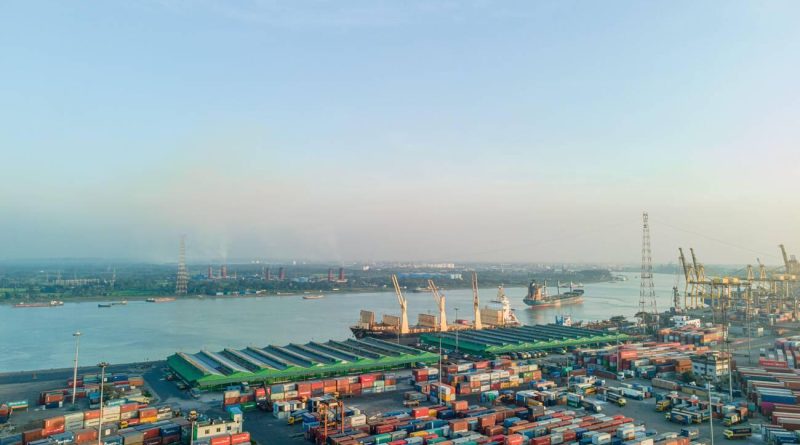Chittagong Port, the country’s premier maritime gateway, is set to revise its service charges for the first time in nearly four decades — a move that has drawn serious concern from key stakeholders across the trade and logistics sectors.
Port authorities have finalized a new tariff structure, currently pending publication in the official government gazette. Once enacted, the revised charges will apply to a wide range of port services, from container handling to vessel-related operations.
While port officials argue that the adjustment reflects the port’s expanded capacity and modernization efforts, port users warn the hike could have far-reaching economic consequences — raising the cost of doing business and, by extension, increasing consumer prices.
During a recent visit to the New Mooring Container Terminal (NCT), the shipping advisor acknowledged the tariff revision but refrained from disclosing the exact rate of increase. Sources indicate the hike could be significantly higher than the 10–15% adjustment proposed by user groups.
“We don’t agree with the proposed increases across various service categories,” said Syed Mohammad Arif, Chairman of the Bangladesh Shipping Agents Association. “This is not the right time for a tariff hike. It will hurt businesses and trade, and we urge the authorities to reconsider.”
According to the Chittagong Port Authority (CPA), existing tariffs — largely unchanged since 1986 — are no longer aligned with current service levels and infrastructure investments. The port collects charges across 52 service categories, recently consolidated to 23 to streamline billing and improve transparency.
The last notable tariff adjustment was in FY 2007–08, limited to a handful of essential service items. Earlier attempts at a broader revision in 1996 and 2012 were abandoned due to strong stakeholder opposition.
The current revision process began in 2020, with the CPA appointing a Spanish consultancy firm to evaluate and restructure the tariff model. The final proposal was submitted to the Ministry of Shipping in 2022 and advanced earlier this year after internal review.
However, stakeholders complain of limited engagement.
“We participated in a meeting on June 2 at the Ministry of Shipping and shared our feedback,” said a senior representative of a port user group. “But there was no follow-up. The final decision was made without consensus.”
Among the changes, the handling charge for a 20-foot container is expected to rise from $43 to over $70. Free storage duration at the port yard remains unchanged at four days, but from the fifth day, the rate will increase from $6 to $6.90 per container.
CPA Secretary Omar Faruk defended the move, citing investments in technology and infrastructure.
“We’ve made significant improvements in port capacity and service quality,” Faruk said. “As a public entity, adjusting tariffs is necessary to reflect these upgrades and ensure financial sustainability.”
But stakeholders argue the timing is problematic, given the fragile state of business confidence, rising production costs, and global trade headwinds.
“The tariff hike will have a cascading effect on trade, industrialisation, and the overall economy,” said Khairul Alam Suzan, Director of the Shipping Agents’ Association. “We support development — but it must be inclusive and aligned with national interests.”
He pointed out that Chittagong Port operates at a profit and generates surplus income beyond its operational and development expenses.
“Raising charges now risks upsetting the balance in trade and industrial competitiveness,” he said. “This will translate into higher import-export costs, directly impacting raw materials, essential goods, and ultimately, the consumer.”
Leaders in the export sector echoed similar concerns.
“This is a blow to an already pressured industry,” said SM Abu Tayeb, former First Vice-President of BGMEA. “Production costs have surged for multiple reasons — an abrupt increase in port tariffs could push many businesses over the edge.”
Business owners in the leather, garments, and light engineering sectors also flagged potential threats to export competitiveness, warning that the hike could erode their position in global markets.
Despite the widespread concern, CPA officials maintain that the changes are both necessary and measured.
“The impact on consumers will be negligible,” insisted CPA Secretary Omar Faruk. “The adjustments are minimal and have been calculated carefully to reflect value without causing disruption.”
Still, industry insiders argue that without broader stakeholder dialogue and a phased approach, the revised tariffs may trigger unintended macroeconomic consequences — and further strain the country’s trade ecosystem.






